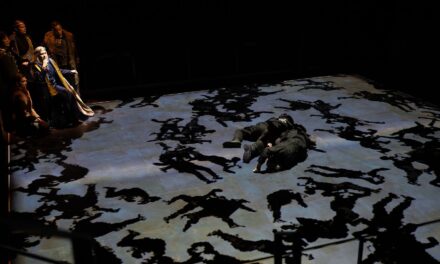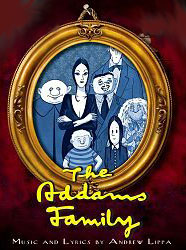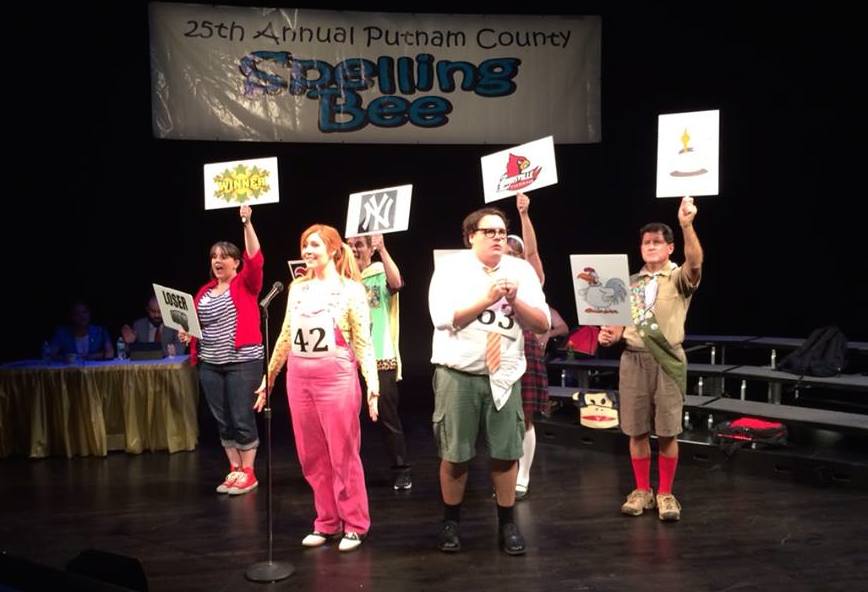 |
| Julane Havens working with students in Nicaragua. Photo courtesy of John Fitzgerald. |
Commentary by Julane Havens
Text Copyright 2013 by Julane Havens. All rights reserved.
I believe in a theater as engaging as the Louisville Cardinals’ championship game. I believe in a theater community as inviting and uplifting as a church on Sunday. I believe in the power of storytelling to unite and inspire our city, our country, our world.
Theater saved my life. As a child, I took my parents’ divorce and subsequent absence of my father very hard. I would have done anything to feel important and included. That great need presented me with choices that had the potential to impact my future. Luckily for me, there was Drama Club: my drugs, my alcohol, my defiance.
On July 5, 2013, I found myself in a barrio of Managua, Nicaragua (the second poorest country in the Americas), with a group of over 40 children presenting a play they created about home: their experience of it, their fears, their dreams for the future. This was the first time a play was performed in this area. But, the greater achievement was giving those amazing young people a new choice in life. “That was fun. I am proud of my friends and myself. I want to be a part of something like that again, so I won’t….” You can fill in the rest.
Theater isn’t just for inspiring young people. Adults need a theater that encourages them to laugh and lift the seriousness of life off their shoulders for a minute. Perhaps they need this even more than children, who still know how to play. Unfortunately, the people who need the joys of theater the most often can’t afford the price of admission, don’t feel welcome, or don’t have the leisure time to attend. I want to change that.
Let’s start by examining what community means in theater-speak. The term community theater needs to be redefined as a group of artists with shared traditions and values that create theater together. We must stop using community when referring to lower monetary value of productions or lesser quality/talent of the artists. We must encourage our local artists to be proud of working in and with their community.
Imagine if all of our most creative citizens abandoned us for the larger metropolises where they could be considered “serious professionals” in their craft. What a loss for the city of Louisville. But the fact is that our most creative citizens do not always leave. They cannot always afford and do not always want to live somewhere else. The grass is not always greener in New York and Los Angeles. That is why it’s time to change the opinion that the artistic worth of a theater production (or any art for that matter) has anything to do with a zip code.
My dream for Louisville theater (and theater everywhere) is inclusion: local artists valued and respected on the same level as anyone from out of town; out-of-towners welcomed and excited to participate in our vibrant theater community; artists, donors, and leaders collaborating together to find solutions to problems and to build an environment that embraces creative risk-taking; theaters no longer worried about keeping their doors open because their work is considered critical to the health of the city. Instead of asking what production will bring in the most dollars, local theaters will be able to ask, “What impact will telling this story have on our community?”
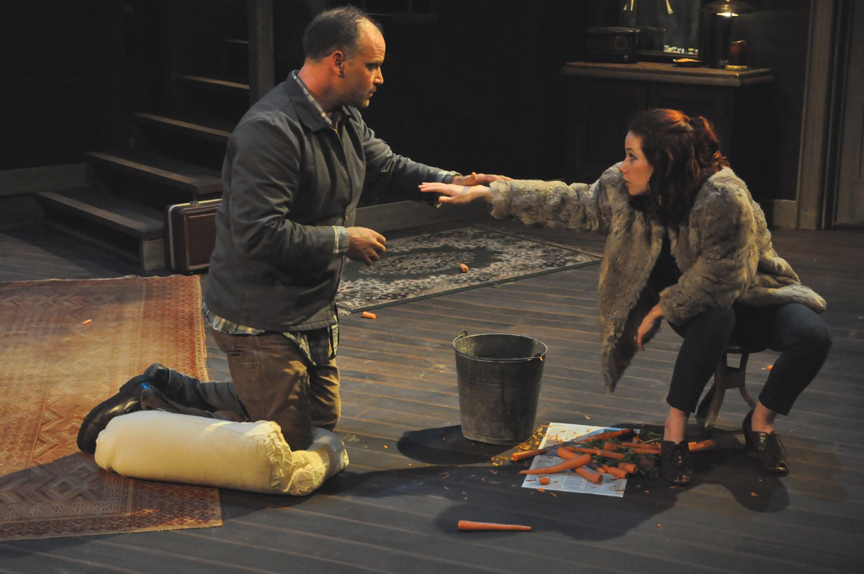 |
| Julane Havens in Bunbury Theatre’s production of Buried Child. Photo – Lily Bartenstein. |
I am eager to share stories. And I want to share them with an audience that expands beyond other artists, their patient family members, and students who are taking a theater class because they assumed it was an easy arts-elective.
You can’t tell a community to go to the theater because it is good for them and their city. You can’t tell a community you are worth supporting because of your history, your credentials, or even your enthusiasm. You can invite them and hope they give you a chance. Even better, you can offer your hands, your ears, and your heart to them and give them a real reason to see your show: because you are telling their story. You can become relevant.
Break down the social and economic barriers that have made going to the theater a privilege for the few. Have at least one pay-what-you-can night for each show in a season. I’d rather have 100 audience members who paid $5 a ticket than 25 who paid $20. Make theater available to more people by making it as affordable as possible. If you can share a story for free, more power to you. Just don’t make the free seats the ones in the back.
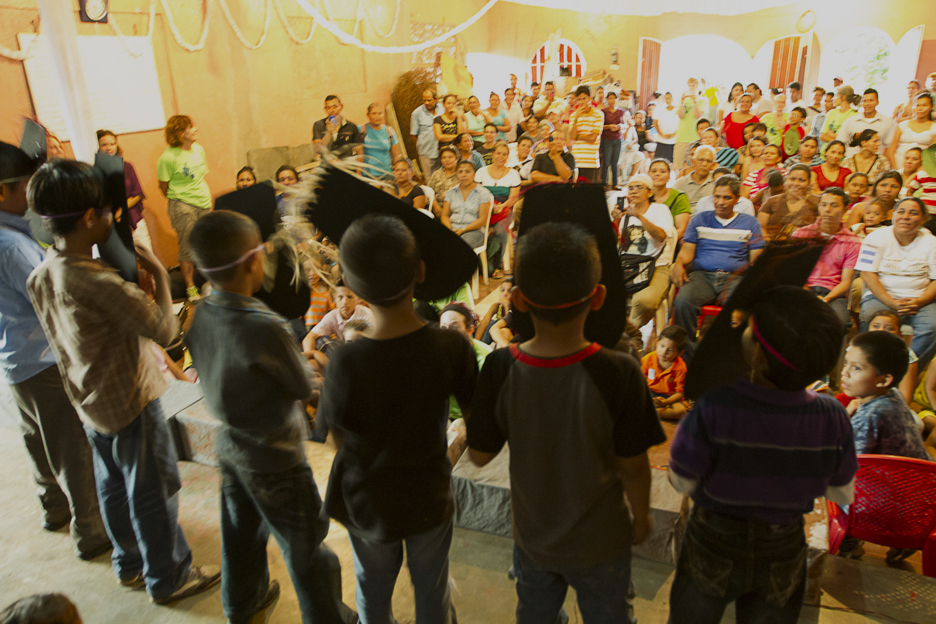 |
| Julane’s Nicaragua project in performance – July 2013. Photo courtesy of John Fitzgerald. |
Bring theater experiences to neighborhoods, schools, and parks where there are none. The great shows don’t have to live downtown. Invite everyone and find a way to include anyone who wants to take part. Reach out to people by being accessible to them; they will be more likely to come to your part of town if they have a relationship with you.
Television and film will never replace the experience of a live performance. There is great power and an immediate energy potential between artist and audience. That is why political leaders throughout history have silenced so many artists. They can bring a community together. They can inspire action. They can ignite change.
Change begins here with using the word communitypositively. Have pride in Louisville artists and support the production of work that is relevant and accessible to the people who live in our great city.
Julane is an Artistic Associate for Walden Theatre and an Artistic Ensemble Member of Savage Rose, where she is playing Viola in the upcoming production of Twelfth Night. She played the role of Shelly in the Louisville premiere of Sam Shepard’s Buried Child at Bunbury Theatre. She is currently working on expanding Walden’s Connecting Cultures program in Managua, Nicaragua, and Appalachia, Kentucky, with Hand in Hand Ministries and the Fund for the Arts.
Julane would like to invite you to a free community event on August 4that 2 p.m.: An Afternoon of Shakespeare Scenes and Sonnets at Memorial Park (Fourth and Kentucky Streets), featuring local artists and community members who love the Bard.
An Afternoon of Shakespeare Scenes and Sonnets
August 4, 2013
2 p.m. – FREE to the community
Memorial Park
4th and Kentucky Streets
Louisville, KY 40203

